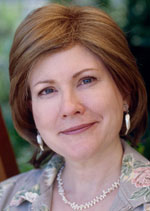Feeling sluggish? Dazed? Foggy? As if you’d like to hibernate the rest of the winter?
The period after the holidays can leave us feeling anything but energetic. A bit of that is the natural letdown from a festive and active season of celebrations, reunions and an outpouring of good cheer. If you have a chronic health condition, you might also experience a flare-up of your illness after all the party remnants have been stored away. That could certainly sap your energy.
If you are active with the Advent and Christmas liturgies, you might be extra tired because of the double or triple duty at your parish and at home.
Each year, I try to cut back on the hectic, stressful part of the holidays because I know that I’ll probably feel the effects for weeks. But it is difficult to do this when the calendar is moving along and yet another fun or beloved opportunity arises. Yep, after Jan. 1, I do my share of longing for hibernation, too.
But I also try to re-establish a good level of energy as quickly as I can. I know that, whereas during the holidays some good health practices slip (eating all of those goodies, slacking off on exercise), the better I can start into the new year, the faster I’ll recoup and keep my energy.
[hotblock]
There are some practices we can adopt to help us start out right.
For example, remember to recharge. We’ve been busy, burdened with extra duties and our reservoir of energy is depleted after nearly two months of holidays. One of the best ways I recharge my energy is to stay close to home. Comfort and familiarity is soothing and revives the soul.
Another practice is to pace yourself. In the new year, we get back to work, school, regular household responsibilities and deadlines. Patterns of activity can be very helpful for retrieving a regular rhythm, but if we pile on too much at once, we might suffer more fatigue. Pace those early days of January carefully, and build up your activity instead of starting everything at once.
Also, remember to establish a good sleeping routine. Sleep deprivation can compound that deep feeling of exhaustion and contribute to health problems and lack of productivity. After losing one night of sleep with midnight Mass and greeting the new year, allow yourself solid sleep.
Another suggestion I offer is to find a routine that fits you. Many of us make a resolution to exercise more as a new year begins, but the majority of these promises are left on the gym floor as the year progresses.
Make a calculated effort to find a routine that works for you. Consider your schedule, cost, abilities and, most important, what you like to do. Enjoying the activity will help when you teeter on the edge of procrastination.
Also remember to cultivate what is good for you. Violence, negative stress, worry and fear can keep us down in fundamental ways. By reaching for and cultivating good things in our lives and world, we can lift our mood and raise our spirits.
Keep that spirit of Christmas alive long after the holy day. Keep up with the spiritual practices encouraged at Christmas (more prayer, uplifting music, focus on faith).
I hope the new year brings you blessings and you can find greater hope and strength that can help fight fatigue, as well as delightful surprises, profound peace and joy throughout.
PREVIOUS: On semi-auto pilot: A distinction without a difference
NEXT: Change your language, change your world




Share this story